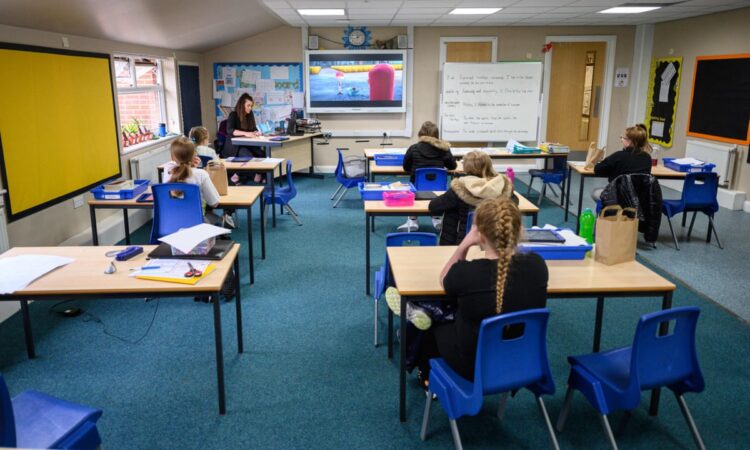By Gavin Mackintosh-
The Department Of Education has put in place contingency plans in the event school attendance in the UK needs to be limited again.
According to plans put in place, primary schools may be advised either to restrict attendance to vulnerable and key worker children, or apply those restrictions to those groups plus pupils in reception, year 1 and year 2 pupils.
The change is a departure from the contingency framework issued on December 30, which stated that primary schools would be advised only to open to vulnerable and key worker children if restrictions were needed.
The new guidelines states that under restricted attendance, schools will still be expected to provide “high quality” remote education for all pupils that are not attending schools.
Vulnerable Children
Schools may be advised to prioritise only vulnerable and key worker children, or those groups plus pupils in years 10, 11, 12 and 13, and “other pupils who were due to take external exams this academic year”.
Middle schools “may need to adopt a combined approach depending on the restrictions in primary and secondary schools in the local area”.
As with primaries, remote education expectations will remain in place for those not in school.
Prohibition On Implementation To Apply Measures
Under the terms of the guidance, schools must not implement the measures of the kind set out in the contingency framework without the “explicit approval” of the DfE.
The restrictions set out should also “not be used to address operational challenges, including staff shortages”.
The guidance also states that the “exact nature” of the restrictions will “depend on the scientific and public health advice”, and that “detailed operational guidance will be published when restrictions are advised”.
Advanced notice will be provided in any event of the need for restrictions to be put in place, the guidance states.
Ministerial decisions to restrict attendance will be made “on an area-by-area basis in the light of all available evidence, public health advice and local and national circumstances”, the guidance states.
Schools “should have a contingency plan for how they would operate if any of the approaches for easing and tightening of restrictions become necessary in their local area”, the DfE also said.
The guidance states that restrictions affecting education “may be necessary as a last resort” if there is an “extremely high prevalence of coronavirus (COVID-19) and existing measures have failed to reduce community transmission”.
It also adds that restrictions may be needed to “help minimise the impact from new variants of the virus”.

